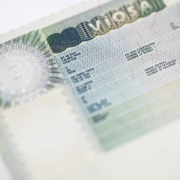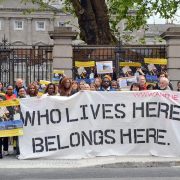MINISTER FOR JUSTICE ANNOUNCES NEW VISA REQUIREMENTS FOR NATIONALS OF DOMINICA, HONDURAS AND VANUATU, AND VISA WAIVERS FOR CERTAIN DIPLOMATIC PASSPORT HOLDERS
On the 4th of March 2024, the Minister for Justice Helen McEntee announced that, effective from 7th March 2024, nationals of Dominica, Honduras and Vanuatu will now be required to obtain a visa before travelling to Ireland.
A transit visa will also be required for nationals of these countries if they are travelling through Ireland on the way to another destination.
The Minister stated that this decision was made to bring Ireland into closer alignment with the visa regime in the UK and Schengen area.
Transitional arrangements will be put in place for nationals of the affected countries who have existing arrangements to travel to the State in the weeks after the new visa requirements come into effect. For affected people who have made plans to travel to Ireland, and can show evidence of booking and paying for that travel, ISD will try to accommodate emergency travel for customers, in the following circumstances:
‘1. A critical medical case involving a family member being seriously ill or undergoing medical treatment.
- Visiting a significant family event – a birth, wedding or funeral.
- Taking up a place obtained in a third-level institution on an undergraduate or post graduate degree course.
- Taking up employment and holding an Employment Permit for Ireland.
- Travelling for business.’
Those attempting to be accommodated for emergency travel in any of the above circumstances must provide suitable evidence of same to ISD.
ISD has announced that if a person believes they fall into any of the above categories, and your scheduled arrival is on or before 7th April 2024, to email [email protected] with the subject line “Visa Imposition – Emergency Travel Required.”
This comes after the announcements that Convention Travel Document holders would now be visa required in July 2022, and that Bolivian nationals would be visa required in September 2023.
Ms McEntee also announced that the visa requirement for diplomatic passport holders of Indonesia, Qatar, Kuwait, Montenegro, Kuwait, Türkiye, Colombia, Peru and Georgia has now been lifted.
The requirement for a visa has also been listed for those accompanying a Minister of the Government of the above referenced countries on an official visit to the State, provided the person has an official passport, service passport or public affairs passport. The same policy applies for Irish diplomats travelling to these countries.
The Minister for Justice announced that this move would enhance the close ties in the political, economic and cultural spheres and continue to develop a close relationship with those countries.
The Minister for Justice stated that the Irish visa requirements are kept under constant review, having regard to the need to ensure that effective immigration controls are in place, whilst also facilitating those who wish to travel to Ireland for the purposes of a visit, to work, to study or to join family members.
The full notice can be found here.
This blog article has been prepared on the basis of current immigration law and policy, which is subject to change. Please keep an eye on our blog and Facebook page where articles relating to updates and changes in immigration law and policy are regularly posted.


